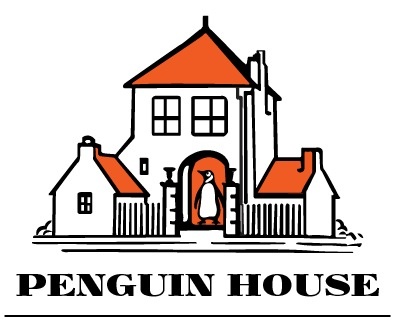October 29, 2012
Breaking news — It’s official: Random House and Penguin announce agreement to merge
by Dennis Johnson
 Despite a last-minute attempt by Rupert Murdoch to “scupper” the deal (see the previous MobyLives report), a just-released joint press release from Bertelsmann, the corporate owner of Random House, and Pearson, the corporate owner of Penguin, announces that the two companies have indeed come to terms on a deal to combine their book-publishing businesses.
Despite a last-minute attempt by Rupert Murdoch to “scupper” the deal (see the previous MobyLives report), a just-released joint press release from Bertelsmann, the corporate owner of Random House, and Pearson, the corporate owner of Penguin, announces that the two companies have indeed come to terms on a deal to combine their book-publishing businesses.
As the release put it:
The international media groups Bertelsmann and Pearson announced today that they will combine the activities of their respective trade-book publishing companies, Random House and Penguin Group. Bertelsmann will own 53 percent, Pearson 47 percent. The closing of the transaction is scheduled to take place in the second half of 2013, following regulatory approval.
The announcement of the combination was made today in Gütersloh, Germany by Thomas Rabe, Chairman and CEO of Bertelsmann, and in London by Marjorie Scardino, Chief Executive of Pearson.
Upon closing, Markus Dohle, Chairman and Chief Executive Officer of Random House worldwide, will be CEO of the new group. John Makinson, Chairman and CEO of Penguin, will become Chairman of the Board of Directors. Additional senior executive appointments will be announced in due course. Bertelsmann will appoint five representatives to the group’s Board of Directors, Pearson four. The new name will be Penguin Random House. Until the closing, the companies will maintain their current separate operations and continue conducting business independently.
The new publishing group will include all the publishing divisions and imprints of Random House and Penguin in the United States, Canada, the United Kingdom, Australia, New Zealand, India, South Africa, as well as Penguin’s publishing company in China, and Random House’s Spanish-language publishing operations in Spain and Latin America. Random House’s Munich-based German-language publishing company, Verlagsgruppe Random House, will not be part of the Group and will remain at Bertelsmann. In the new company, the publishing imprints of Random House and Penguin will continue to publish their books with the autonomy they presently enjoy, and retain their distinct editorial identities.
A New York Times report offers one explanation for the fact that the deal is not a fifty-fifty partnership:
By taking control of the company, Bertelsmann, which is based in Gütersloh, Germany, hopes to avoid the problems that plagued a 50-50 partnership with Sony of Japan, in which the two companies combined their music recording divisions. The venture, Sony BMG, was riven by management turmoil and differences over strategy, prompting Bertelsmann to sell its share to Sony eventually.
And a Financial Times report (subscription) notes the division of power could shift further still as the partnership gets underway:
Both media companies had agreed to hold their stakes for at least three years and it was likely that Bertelsmann would seek to increase its shareholding thereafter, according to a person briefed by the German side. Both Bertelsmann and Pearson have the right to trigger an initial public offering after five years.
A Wall Street Journal report (subscription), meanwhile, observes that “Bertelsmann and Pearson didn’t disclose the value of the joint venture, but a person familiar with the matter indicated that the equity valuation would be somewhere between $2 billion and $3 billion.”
And no one, it appears, expects there to be significant trouble getting the deal past regulators in both countries. As a Guardian report notes, “Analysts … suggest it is likely to be waved through as regulators allowed the music industry to be consolidated down to just three big players.”
As for the impact of the deal, while it’s all about standing up to Amazon at root, it may have an impact on the previous attempt by publishers to stand up to Amazon: A Publishers Weekly story reports that Penguin CEO Mackinson “told PW the joint venture could change how Penguin proceeds in pressing ahead with its fight against the Department of Justice‘s e-book price fixing case. Repeating that Penguin did nothing wrong when it moved to agency, he said for the moment Penguin is still preparing for a June trial. He allowed, however, that after talks with the DoJ about the merger and further discussions with Random its approach to the lawsuit could change.”
Dennis Johnson is the founder of MobyLives, and the co-founder and co-publisher of Melville House.